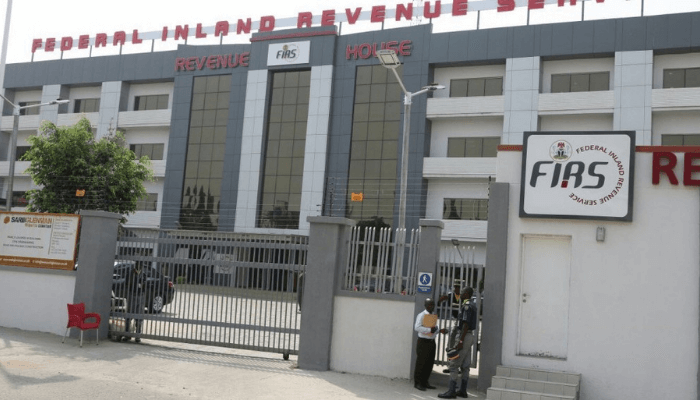The Federal Inland Revenue Service (FIRS) has entered into a strategic partnership with the Economic and Financial Crimes Commission (EFCC) to intensify enforcement of tax compliance across Nigeria. The move, announced on Wednesday, is part of efforts to boost government revenue, curb tax evasion, and ensure that businesses and individuals meet their statutory obligations in line with the country’s fiscal policies.
The collaboration comes at a time when the government is under increasing pressure to diversify revenue sources amid declining oil earnings and rising expenditure demands. Tax revenue remains Nigeria’s most reliable non-oil source of funding, but the challenge of non-compliance, under-reporting, and deliberate evasion has continued to weaken collections. According to FIRS, trillions of naira are lost annually due to non-remittance and tax avoidance schemes.

FIRS Chairman Zacch Adedeji, speaking at the signing of the cooperation framework, explained that the agency’s decision to tap the EFCC reflects its commitment to strengthening enforcement mechanisms. He noted that while the FIRS has consistently invested in digital platforms to simplify tax processes, compliance levels remain below expectations, necessitating stronger punitive measures for defaulters.
“Tax compliance is not optional; it is a civic duty. The government cannot deliver essential services and infrastructure if individuals and businesses continue to evade their responsibilities. Our collaboration with the EFCC is to ensure that those who deliberately fail to comply are held accountable under the law,” Adedeji said.
The EFCC Chairman, Ola Olukoyede, welcomed the partnership, assuring that the anti-graft agency would deploy its investigative capacity to trace fraudulent tax practices and prosecute offenders. He stressed that tax crimes are often tied to broader financial crimes, including money laundering, illicit financial flows, and fraudulent accounting.
“Tax evasion is not just about depriving the government of revenue; it often involves other criminal activities that damage our economy. This partnership will allow us to track financial irregularities more effectively and bring perpetrators to justice,” Olukoyede stated.
Industry watchers see the collaboration as a bold step toward strengthening Nigeria’s tax administration system. The EFCC’s involvement is expected to send a strong deterrent message to chronic defaulters and enhance confidence in the country’s fiscal institutions. By leveraging the investigative authority of the EFCC, FIRS aims to close loopholes and ensure that no entity, regardless of size or influence, is above compliance.
The partnership is particularly crucial in light of recent reforms in Nigeria’s tax sector. The government has been pushing for increased non-oil revenue mobilisation to finance ambitious infrastructure projects, social welfare programs, and debt obligations. President Bola Tinubu’s administration has consistently emphasised tax efficiency as a central pillar of its economic agenda.
According to fiscal experts, the synergy between FIRS and EFCC could also help tackle the culture of impunity that has characterised tax evasion in Nigeria for decades. Many large corporations and wealthy individuals have been accused of exploiting weak enforcement structures to avoid paying their fair share. Strengthening compliance through criminal prosecution, they argue, could improve revenue without necessarily imposing new taxes on the population.
In recent months, FIRS has ramped up sensitisation campaigns, urging Nigerians to embrace voluntary compliance. Digital platforms such as TaxPro Max have been introduced to streamline filing and reduce human interference. Yet, despite these innovations, enforcement remains a challenge, particularly against entrenched evasion schemes involving shell companies, false declarations, and unremitted withholding taxes.
By engaging the EFCC, the FIRS hopes to create a more robust deterrent system. The threat of arrest, investigation, and prosecution by the nation’s foremost anti-graft agency is expected to compel greater compliance from taxpayers. Already, FIRS has begun sharing intelligence reports with the EFCC to identify non-compliant entities and individuals.
The private sector has reacted with mixed feelings to the announcement. While some business leaders welcome the initiative as a step toward fairness—ensuring that tax defaulters do not gain undue advantage over compliant companies—others fear it could foster heavy-handed tactics and discourage investment. Experts urge that the partnership be implemented with balance, focusing on chronic defaulters while continuing to simplify compliance processes for honest taxpayers.
Civil society organisations have also weighed in, calling for transparency and accountability in the enforcement drive. They argue that while taxpayers must fulfil their obligations, the government must also ensure prudent use of collected revenues to build trust. Without visible improvements in public services, they warn, aggressive enforcement may be viewed as exploitative rather than patriotic.
For ordinary Nigerians, the partnership signals the government’s determination to leave no stone unturned in revenue generation. With budgetary pressures mounting, citizens expect that improved collections will translate into better infrastructure, healthcare, education, and job opportunities.
As the FIRS-EFCC collaboration unfolds, observers believe its success will hinge on consistency and fairness. Selective enforcement, political interference, or lack of follow-through could undermine the effort. Conversely, a transparent, impartial, and sustained enforcement drive could mark a turning point in Nigeria’s fiscal discipline.
For now, the message from both agencies is clear: tax compliance is no longer negotiable. With the EFCC now officially in the loop, tax defaulters face not only administrative sanctions but also criminal prosecution. As Nigeria pushes toward economic recovery and diversification, ensuring every citizen and business contributes fairly through taxation has become a national priority.
Support InfoStride News' Credible Journalism: Only credible journalism can guarantee a fair, accountable and transparent society, including democracy and government. It involves a lot of efforts and money. We need your support. Click here to Donate
